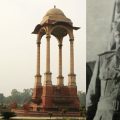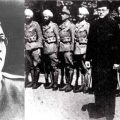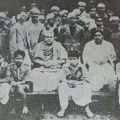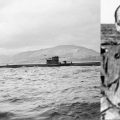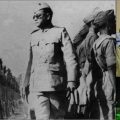Netaji Bose: Journey from Odisha to Cambridge and Making of a Leader
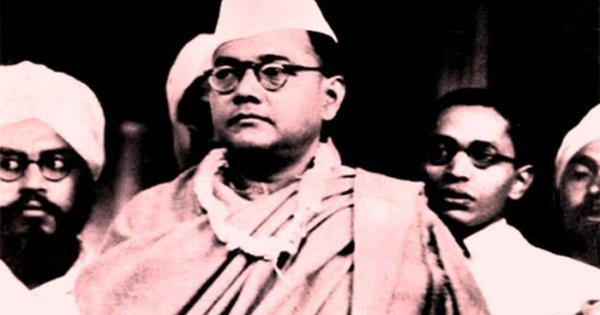
My idol is Netaji Subhas Chandra Bose. I have realized that Netaji Subhas Bose was no ordinary man and the more I studied about him, the more I was fascinated. He had a gift, the gift of a visionary. He had the ability or was naturally ordained to look miles ahead of his contemporaries. At the onset, I must be cautious to admit that I have not written a detailed account of his early life, but assuredly, all the significant moments of his early life till the period of 1931 are incorporated. This period also marks the journey of Subhas Chandra Bose from the coastal plains of Orissa to the Cambridge university and his rising as the Leader whose indomitable spirit shook the world largest imperialistic empire.
This is the first in the series of articles I have planned to write about the true Liberator of India, and in this article, I have tried to cover the period till 1931. Moreover, I have written this article from the knowledge drawn from the laudatory work of Col. Hugh Toye’s “Subhas Chandra Bose — The Springing Tiger” and “An Indian Pilgrim – An unfinished Autobiography” authored by Subhas Chandra Bose. I therefore at the very onset convey my apology to all the Subhas Bose admirers and followers for any shortcomings in the article.
Subhas Chandra Bose was born on January 23rd, 1897, at Cuttack, Orissa. Those were the turbulent years of Nationalism where a growing tinge of revolutionary spirit slowly but freely mingled with the nationalistic fervor. There was a spiritual awakening, and a recognition to the importance of freedom. Vivekananda’s speech in the Parliament of Religions had given a spiritual upliftment to the freedom movement. In 1905, the partition of Bengal shook the very foundations of cultural unity, and the Bengali Nationalism- shaped by its own literature, language and ideals saw it as a challenge to their Constitution and patriotism. Violence was the order of the day. The Revolutionaries collected arms, manufactured bombs in schools and colleges throughout Bengal, active recruitment of young revolutionaries for various secret societies marked this period, and more violence was the ultimate product.
In 1911, Partition stood repealed but the Scar remained. The nationalistic spirit was to oust the imperialists to end the cruel foreign rule, so this was the atmosphere in which young Subhas Bose grew up. His father, Sh Janakinath Bose, was an established lawyer ‘of broad social Interests and Orthodox nationalism’ [1]. He was the public prosecutor in Cuttack, since 1905 and became a member of the Bengal Legislative Council from 1912. Col. Hugh Toye in ‘The Springing Tiger’ writes: “He was a man of moderate means and great ambition for his eight sons and six daughters. His wife, a strong, sensible woman, ruled her large family firmly. The sixth son Subhash, stood in awe of his father and mother, and looked with envy on children whose contact with their parents seemed closer. But it was a healthy, disciplined home and he learnt to respect industry and good behaviour.”
In the initial years, Subhas Bose went to the Baptist Missionary school where his brothers also studied. Here, he underwent a formal English education and was marked early as a student of great potential and showing great promise for the future. But, owing to the fact that Bengali had now become a compulsory subject for the Calcutta matriculation: a new way was to be devised and when young Subhas Bose was just 12, he went to an Indian School, the Ravenshaw Collegiate School, to assure that Bengali as a subject shouldn’t become an obstacle in his path to clear matriculation. During this period he ushered a new love for gardening and nature study. Col. Hugh Toye writes “He was a reserved, serious boy; an avid reader, introspective, his mind turning in upon itself in a precocious concern for religious truth, self-control and psychic harmony. The sadhus and pilgrims at Puri, near his home, fascinated him; he was attracted by Yoga and mysticism. There was active compassion which would drive him to seek opportunities of social service, a slow political awakening and some contact with the secret societies of Calcutta. The conflict between mystic and man of action thus came early to him.”
At the age of fifteen, he came to read the writings of Swami Vivekananda, whose primary theory revolved around ‘Karma-Yoga’, service to humanity and particularly to Mother India. Netaji records in his Unfinished Autobiography: An Indian Pilgrim, Page-38
“I was barely fifteen when Vivekananda entered my life. Then there followed a revolution within and everything was turned upside down. It was, of course, a long time before I could appreciate the full significance of his teachings or the greatness of his personality, but certain impressions were stamped indelibly on my mind from the outset. Both from his portraits as well as from his teachings, Vivekananda appeared before me as a full-blown personality. Many of the questions which vaguely stirred my mind, and of which I was to become conscious later on, found in him a satisfactory solution. My headmaster’s personality ceased to be big enough to serve as my ideal. I had previously thought of studying philosophy as he had done and of emulating him. Now I thought of the path which Vivekananda had indicated.”
He further records:
“ From Vivekananda I turned gradually to his master, Ramakrishna Paramahansa. Vivekananda had made speeches, written letters, and published books which were available to the layman. But Ramakrishna, who was almost an illiterate man, had done nothing of the kind. He had lived his life and had left it to others to explain it. Nevertheless, there were books or diaries published by his disciples which gave the essence of his teachings as learnt from conversations with him. The most valuable element in these books was his practical direction regarding character-building in general and spiritual uplift in particular. He would repeat unceasingly that only through renunciation was realisation possible- that without complete self-abnegation spiritual development was impossible to acquire. There was nothing new in his teaching, which is as old as Indian Civilisation itself, the Upanishads having taught thousands of years ago that through abandonment of worldly desires alone can immortal be attained. The effectiveness of Ramakrishna’s appeal lay, however, in the fact that he had practiced what he preached and that, according to his disciples, he had reached the acme of Spiritual progress.”
So, these words written by Subhas Bose clearly showcases the impression Swami Vivekananda and his Guru Sri. Ramakrishna casted upon the firm and young mind of Subhas. As a result, selfless service became his ideal. In 1913, he began to study Philosophy at the Presidency College, Calcutta. In his Spiritual quest, in 1914, without informing his parents, he along with a friend went to Northern India, to search for a spiritual master, who would show him the spiritual path.
Though, slowly in the cloud of spiritual agony, political activism began to strengthen its grip upon Subhas Bose. By that period, he was already the chosen leader among students and played an active role in college life. He started a debating club, as the country would need great debaters, parliamentarians – when the country would be freed from British yoke. Though he mostly remained secluded, self-contained, reserved among his friends, but in discussions or in arguments within the debating club cycle, he always made speeches seemed to be warm and urgent.
During this phase of Subhas Bose’s life occurred an incident which he quoted to be the turning point of his life: this incident also left a permanent scar upon his soul which in later life fuelled his instinct never to give up his struggle against the British imperialism. He was expelled from his college for his leading role in an assault on one of the English lecturers. Subhas Bose neither denied the incident nor did he apologize for the same. As a result, he was expelled in Feb 1916. He never turned back nor lost control of himself after this incident. He came back to Cuttack and devoted his time to nursing, social work and the process of mental discipline which he termed as “self- analysis.” But, the injury would never be forgotten.
Sh. Janakinath Bose could assess the situation quite well, and also read the injustice met to his son. He was sympathetic to that extent, but he insisted that Subhas must finish his course at Calcutta, first. In July 1917, he was readmitted to the University. There was no stopping him thereafter. He joined the University training corps, in 1918 became a member of the student’s consultative Committee and in 1919, passed Philosophy Honours in first class. It seemed clear that he was academically firm and nothing could become an impediment in his path. Father was aware of son’s nationalistic inclination and therefore to assure his son’s detachment from the same decided that Subhas therefore shall go to England and appear for the Civil services. It would be hard to evaluate how Subhas Bose himself felt about this new adventure. Col Hugh Toye in The Springing Tiger observes: “With many misgivings he agreed to go. This was no change of heart: to enter the Indian Civil Service was still consistent with Indian Nationalism, and the examination would serve him as a final test of his superiority over the European…”
At Cambridge, Subhas Bose studied the British closely and owing to which he made efforts to make himself personally acceptable to the British. He began to make English friends. He admired the energy, fondness for discipline and ‘esprit de corps’ of English people. He observed ‘People here have a sense of time. Many are their defects, but one must bow one’s head to their merits.’ He also pushed his fellow Indians to adopt the good elements of English Culture, and Race. During his Cambridge days, he maintained the same routine and aura; he doubled up his concentration, his works were methodical, his love for personal discipline made him a subject of envy and discussion among his compatriots. His friend Dilip Kumar Roy, was the only person who could force Subhas Bose to come out of his serious atmosphere and appreciate music, and nourished his sense of laughter and beauty.
In 1920, Subhas Bose passed the Civil service examinations in an outstanding feat, securing fourth place, an outstanding feat for someone who had been in England for barely eight months. But, again, Subhas Bose stood on a different paradigm. There emerged in him an inner conflict, which would finally be resolved with his resignation from the civil services. There was also a shift in the direction of Indian Nationalism by this time. Jallianwala Bagh massacre had taken place and in 1920, despite official action against General Dyer and official denouncement of his methods by the House of Commons, there was a sense prevailing, that an English nation as a whole supported the cause of General Dyer. As a result, the non-cooperation movement came into foray, and Mr. Gandhi made a call to Indians to renounce their British titles, and appointments.
Subhas debated the matter of his resignation with his family, especially to Sarat Chandra Bose, his elder brother, who always stood Rock solid in all his endeavours. In the words of Netaji : ‘I must either chuck this rotten service and dedicate myself whole-heartedly to the country’s cause or I must bid adieu to all my ideals and aspirations.’ Till that point, no Indian had ever resigned from the Civil services, but Subhas stood firm and determined. He resigned from the services in April 1921. He decided that he would offer himself for work at the Congress National College in Calcutta, and would work on the new nationalistic paper Swaraj.
The English were equally shocked with his decision. The under-secretary for India sent for him. In words of Subhas Bose ‘I told him that I did not think one could be loyal to the British RAJ and yet serve India honestly, heart and soul’
Sh. Janakinath Bose was grieved by his son’s decision, but nothing could shake him. Subhash Bose returned to India in July 1921, to work with Mr.Gandhi or in a more subtle way to say ‘ to throw himself at his feet.’ But, there was a difference in the working style of Mr.Gandhi and Subhas Bose. Bose was optimistic about the possibilities of revolution in India. So, the first meeting between Netaji Subhas Bose and Mr. Gandhi took place in Bombay. In the words of Netaji:
‘I remember vividly the scene of that afternoon…..I was ushered into a room covered with Indian carpets. Almost in the centre, facing the door, sat the Mahatma, surrounded by some of his closest followers. All were clad in home-made khadi. As I entered the room I felt somewhat out of place in my foreign costume and could not help apologising for it. The Mahatma received me with his characteristic hearty smile and soon put me at ease, and the conversation started at once. I desired to obtain a clear understanding of the details – the successive stages – of his plan, leading on step by step to the ultimate seizure of power from the foreign bureaucracy. To that end I began to heap question upon question and the Mahatma replied with his habitual patience.’
But what was the impact of this meeting over Subhas Bose’s mind or what plan of action followed. Col. Hugh Toye writes: ‘But instead of action, he found non-violence, instead of a revolutionary plan, the pious hope that the British would be ‘converted’ by Gandhi’s methods. Bose left him in disappointment, convinced that he had no clear idea of the successive stages of the campaign which would bring India to her cherished goal of freedom.’
Thereafter, Subhas Bose resigned to Calcutta to work under C.R. Das which would mark as the crucial phase in his life. Subhas Bose entered into active politics in 1921. For the next two years, he served a ‘hard political apprenticeship’ under the supervision of C.R. Das – in the Congress national college (Mr. C.R. Das was himself the principal), on the nationalist newspaper Swaraj and as in charge of the publicity wing of the Bengal provincial Congress Committee. Mr. Das was a different school comparative to Mr. Gandhi and Netaji Subhas found in him the mentor he desired, as a result, he quickly rose through the ranks and was soon at the heart of Congress affairs in Calcutta. Subhas Bose attended Gandhi’s secret conference in September 1921, noted down the instructions of Mr. Gandhi for the new non-cooperation programme. He was prominent in the agitation protest against Prince of Wales’s visit, and he also took charge of the leadership of the Congress Volunteers in Calcutta.
Subhas Bose received his first sentence on 10th December 1921 for parading illegally. The sentence was for only ‘six months’. During the proceedings Subhas Bose said to the Magistrate “Have I then stolen a chicken?” During the same period, Mr. Das was also sentenced and both Subhas Bose and his mentor C.R. Das spent much of their imprisonment together. Col. Hugh Toye observes: ‘Bose served his leader humbly, cooking his food and learning with him the sharp lessons of discomfort. Das’ demeanour impressed him deeply: he was thoughtful always for others and treated all with an equality of kindliness.’
The turning point in their lives being when Mr. Gandhi withdrew his Civil Disobedience in 1922. Subhas Bose and C.R. Das both were dismayed by the general Congress policy and shared their feelings. In the later half of 1922, Subhas Bose devoted his time and energy to help the masses in the flooded regions of Northern Bengal in charge of Congress relief work. Col. Hugh Toye writes: ‘His passionate energy in the presence of suffering and his capacity for organisation won lasting gratitude and increased his political stature in the province.’
In 1922 December, at the Congress assembly, C.R. Das pushed for Congress participation in the Provincial Council, but Mr. Gandhi was against this idea and policy of ‘council entry’. Due to this inconsistency, C.R. Das resigned to form his own ‘Swarajya Party’ and contest the 1923 elections. Although the Swarajya Party was still an offshoot of the Congress party.
In the beginning of 1924, Swarajists emerged as a strong minority group in the central legislature in Delhi and had sufficient strength in the central provinces and Bengal. In 1924, Swarajists took control of the Calcutta Corporation. Mr. Das became the Mayor of Calcutta and Subhas Bose was elected as the Chief Executive Officer. Subhas Bose soon found himself immersed in the daily affairs of the Municipal Corporation. ‘He became thoroughly absorbed in the detail, took his files home like any bureaucrat, and found himself for a time lost to the Congress as a political worker.’
But, situations were soon to be changed and Subhas Bose would again find himself being mishandled and erroneously framed by the British. Col. Hugh Toye writes: ‘Inevitably official suspicion turned against him: to the British he was that most sinister of objects, an enigma. He could not in fact have been an active conspirator, but when in October 1924 the suspected terrorist leaders were rounded up under an emergency ordinance, he was arrested as one of the most dangerous. No charge was ever brought, and such was the clamour against his arbitrary detention that, had a conviction been possible, the authorities could hardly have refrained from trying him.’
He was there in the Alipore jail for two months, then in 1925, January he was removed to the great fort of Mandalay in Burma. The next two years in the Mandalay would mark an important phase in his life. When he came out of prison in 1927, Subhas Bose had a clear astute political vision, and he was now widely regarded as the successor of Mr. Das legacy.
In the words of Netaji:
‘The enforced solitude in which a detenu passes his day gives him an opportunity to think down into the ultimate problems of life. In any event I can claim this for myself that many of the most tangled questions which whirl like eddies in our individual and collective life are edging gradually to the estuary of a solution. The things I could only puzzle out feebly or the views I could only utter tentatively in days gone by are crystallising out more and more presentably every day. It is for this reason if for no other that I feel I will be spiritually a gainer through my imprisonment.’
He further observes:
‘The change in me was this, that I decided to be honest. I resolved that I must, as I watched my own movements, pass judgment on them as I would on those of any outsider. And I can tell you that the practice taught me not a little tolerance till it really came to this – though I don’t know that I’ll be able to achieve it in practice – that even in the thick of the fight (since fight one must) I felt one was obligated not only to be lenient to one’s antagonists but to love them.’
In June 1925, there was a cataclysmic event in the life of Subhas Bose which to a great extent shaped his future political life, and he became the core subject of attraction in Bengal Politics. Mr. C.R. Das suddenly passed away: in the words of Subhas Bose:
‘I gave him my heart’s deep adhesion and reverent love not so much because I happened to be his follower in the arena of politics, as because I happened to know him….in his private life. He had no family, properly speaking, outside that of his colleagues and adherents. Once we lived together in jail for eight months: for two months in the same cell, for six months in adjacent ones. I took refuge under his feet because I came to know him thus….’
This was also the period when the inner conflict within Subhas Bose regarding the path of contemplative life and the life of action kept coming to the surface. He concluded, ‘India needed activists to rescue her from her chronic inertia. The precious fruits of contemplation should come from the select few whose proper milieu it was.’
Netaji’s ideals and political conclusions can also be evaluated in the nature of speeches he made after his release from Burma. According to him, Independence was to be secured by developing the organization of Congress into a parallel government. Each department and ‘Instrument of Administration’ should be ‘duplicated ’ by the Congress, organized labour, political education for the masses. Subhas Bose aspired the transfer of power in the nature of paralyzing the bureaucracy which would flow from a national movement culminating in a general strike and Civil Disobedience which would virtually paralyze the working of the administration of the Country. The jails across India would no longer be able to accept more prisoners and the government could no longer count on the loyalty of its servants. The bureaucracy would then be ‘forced to yield to the demands of people’s representatives..’
Subhas Bose desired the future Constitution to be Republican, and he vehemently opposed Dominion status because he feared that it would perpetuate British Capitalist interests in India. He concluded barriers of wealth, class and caste must end; women must have equality of status with men. He deemed communal representation in the legislatures as a weapon for dividing India and supporting foreign rule. He believed firmly that if the communal question was ignored, the same would be obliterated, and he kept this view till the end of his life.
In 1926, at the later half, he was nominated as the candidate for the Bengal Legislative assembly. One of the reasons was to get him out of the Mandalay fort. The step failed. Ultimately, in 1927, Subhas Bose’s health broke down after prolonged illness and the Government of Bengal offered for a conditional release that he should retire to Switzerland directly without stepping in India. Subhas Bose replied with a thundering:
‘Ideas will work out their own destiny and we, who are but clods of clay encasing sparks of the divine fire, have only to consecrate ourselves to these ideas. A life so consecrated is bound to fulfill itself, regardless of the vicissitudes of our material and bodily existence. My faith in the ultimate triumph of the idea for which I stand is unflinching, and I am therefore not troubled by thoughts about my health and future prospects.
… I am not a shopkeeper and I do not bargain. The slippery path of diplomacy I abhor as unsuited to my constitution. I have taken my stand on a principle and there the matter rests. I do not attach such importance to my bodily life that I should strive to save it by a process of haggling. My conception of values is somewhat different from that of the market place and I do not think that success or failure in life should be determined by physical or material criteria. Our fight is not a physical one and it is not for a material object…. ‘We wrestle not against flesh and blood but against principalities, against powers, against the rulers of the darkness of this world, against spiritual wickedness in high places.
Our cause is the cause of freedom and truth: as sure as day follows night, that cause will ultimately prevail. Our bodies may fail and perish but, with faith undiminished and will unconquerable, triumph will be ours. It is however for Providence to ordain who of us should live to witness the consummation of all our efforts and labours, and as for myself, I am content to live my life and leave the rest to Destiny.’
Now as the scenario turned out that Subhas Bose was too ill to go to Switzerland, without prolonged rest, and this led to his unconditional release on May 16th. In November Subhas Bose was back again in the center of thick political action. He was elected as the Chairman of the Bengal provincial Congress Committee. It was the same period and time, the Simon Commission was appointed to consider the next step in India’s Constitutional progress.
Col. Hugh Toye observes: ‘1928 had given Bose new opportunities for distinction in Congress affairs, a rising distinction which held him in the long-drawn-out process of establishing his political succession to C. R Das in Bengal…’
In December 1927, he had become the General Secretary of the Congress along with Jawaharlal Nehru. He was a member of the all parties Committee which worked out in the summer of 1928 an Indian response to the Simon Commission.
Subhas Bose commanded the parade of ‘Congress Volunteers’ at the 1928 Congress assembly; he also Intervened in Steelworkers strike at Jamshedpur and brought a favorable settlement; He led the funeral procession of Jatin Das through the lanes of Calcutta. Without a doubt, Subhas Bose’s reputation as a leader by this period increased manifold and his popularity may not have been less than Mr. Gandhi.
Subhas Bose was arrested on 23rd January 1930, on his birthday, for leading an ‘Independence’ procession, and was sentenced to one year of Imprisonment. During the Congress assembly, a month ago, he had said: ‘ I am an extremist and my Principle is – all or none. During his period in Jail, he mixed freely with colleagues and friends, spent his time reading, writing, praying in a secluded corner of the Prison room, partitioned off with a sheet. There were few stray Incidents in prison. In lieu of intervening between Jail authorities, and some prisoners (who Subhas Bose felt were roughly handled), he sustained injuries. In July, he staged a hunger strike against prison treatment.
Immediately, after his release on 25th September, he became Mayor of Calcutta as the elected Mayor – who himself was a prisoner failed to take the oath within six months. In the following year, he was elected as the Chairman of the All India Trade Union Congress. Also the welfare of the prisoners of the Civil Disobedience movement occupied him during this period.
In early 1931, Subhas Bose insisted on visiting a disturbed area of Bengal, but an embargo was placed upon him, and consequently he got arrested and imprisoned for seven days. Soon after his release, he was arrested again for leading a demonstration on ‘Independence Day’, January 26th. During this demonstration Subhas Bose sustained injuries. In court, he never defended himself, but as the Mayor of Calcutta voiced the conditions of the jail administration and the inhumane Conditions of prisoners inside jails. Six weeks from this incident, he along with other political prisoners were released from imprisonment under the new Gandhi- Irwin pact.
Back in October 1929, after a few months of consultations with the new Labour government, Lord Irwin proposed on behalf of the government that Dominion status was the ‘natural issue’ of India’s Constitutional progress, and the Round table conferences followed suit.
Col. Hugh Toye in ‘The Springing Tiger’ writes ‘While Gandhi had been negotiating, Bose had abstained from embarrassing him, although he saw no hope of a successful issue. But as the unrest of 1931 began to grow he became a thorough nuisance to the authorities in Bengal, criticising, inciting, prying into any situation of political delicacy, displaying a haughty detachment to British officials who impeded him, disregarding orders, injunctions, prohibitions, smelling out, he might have claimed, injustice, cruelty and oppression.’
On 2nd January 1932, he along with leading Congressmen were arrested. Two days earlier to this incident he had written to a friend:
‘Do you want the fragrance of the full-blown rose? If so, you must accept the thorns. Do you want the splendour of the smiling dawn? If so, you must live through the dark hours of the night. Do you want the joy of liberty and the solace of freedom? If so, you must pay the price. And the price of liberty is suffering and sacrifice.’
Subhash Chandra Bose, Bombay, 21.12.31
References:-
-
Subhas Chandra Bose – The Springing Tiger, Col. Hugh Toye, Jaico publishing House, Nineteenth Jaico Impression: 2011.
-
Subhas Chandra Bose – An Indian Pilgrim, An Unfinished Autobiography, Oxford Publication, Pub Date: 1st June, 1997.
-
Dilip Kumar Roy, The Subhash I Knew, p.50, footnote.
-
Letter to his brother (An Indian Pilgrim, p. 128).
-
The Subhash I Knew, pp. 71, 72
-
The Indian Struggle, pp. 66-67.
-
Letter to Mr. Roy, May 2nd, 1925.
-
The Subhash I Knew, p. 178.
-
The Subhash I Knew, p. 324.
-
Letter to his brother from Insein Gaol, May 8th, 1927.
-
D.K. Roy, The Subhash I Knew.
Featured image courtesy (source): ukasian.com.

